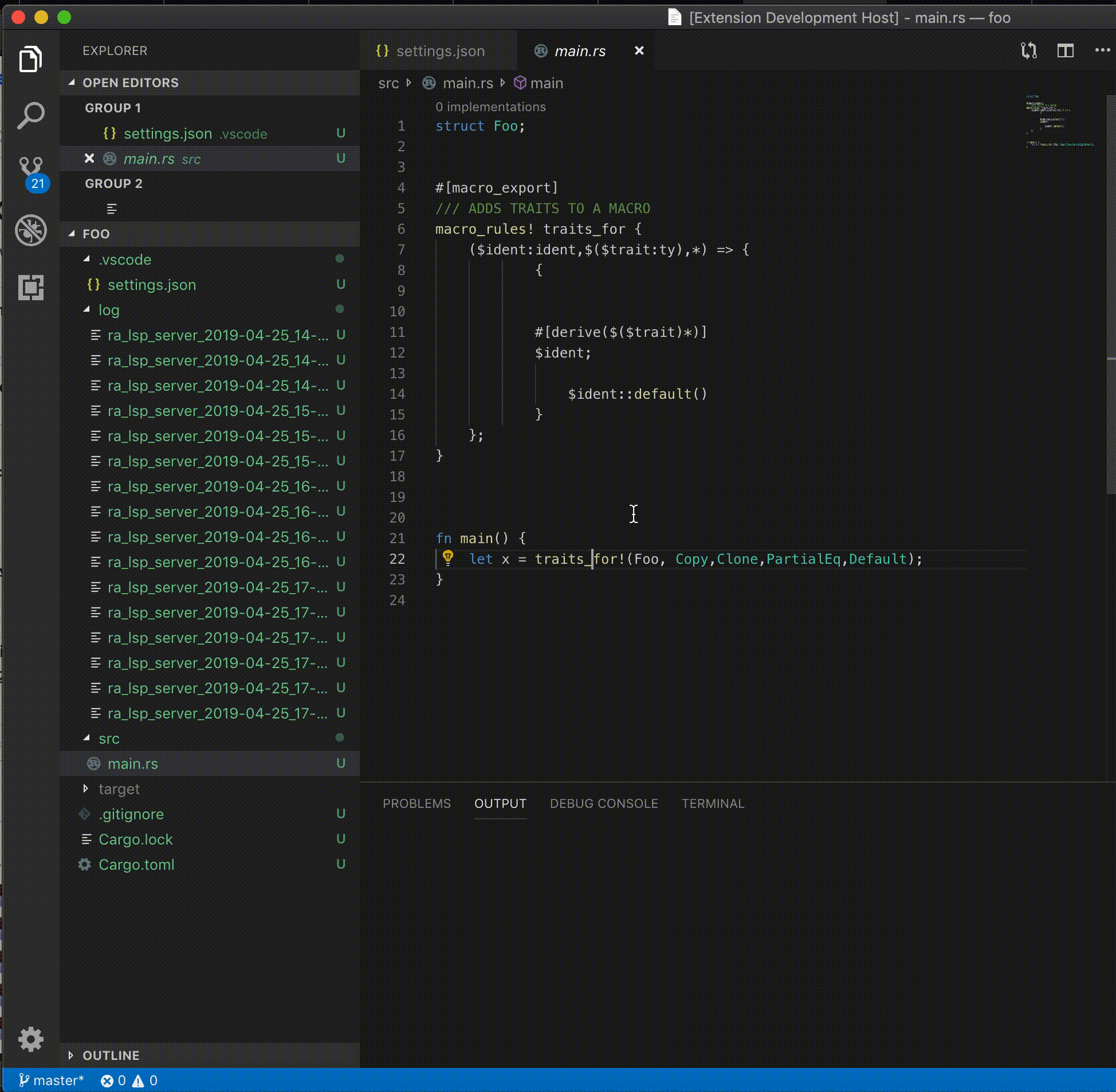Before this commit, `Parse`s for original file ended up two times in
salsa's db: first, when we parse original file, and second, when we
parse macro or a file.
Given that parse trees are the worst ofenders in terms of memory, it
makes sense to make sure we store them only once.
This small fix should improve rust-analyzer resopnsivness for
real-time operations like onEnter handling.
Turns out, salsa's validation can take hundreds of milliseconds, and,
in case no changes were made, it won't be triggering any queries.
Because we check for cancellation in queries, that means that
validation is not cancellable!
What this PR does is injecting check_canceled checks into validation,
by using salsa's event API, which wasn't meant to be used like this,
but, hey, it works!
Here's the onEnter handling before and after this change:
https://youtu.be/7-ffPzgvH7o
1337: Move syntax errors our of syntax tree r=matklad a=matklad
I am not really sure if it's a good idea, but `SyntaxError` do not really belong to a `SyntaxTree`. So let's just store them on the side?
Co-authored-by: Aleksey Kladov <aleksey.kladov@gmail.com>
Very simple approach: For each identifier, set the hash of the range
where it's defined as its 'id' and use it in the VSCode extension to
generate unique colors.
Thus, the generated colors are per-file. They are also quite fragile,
and I'm not entirely sure why. Looks like we need to make sure the
same ranges aren't overwritten by a later request?
1299: Use ThemeColor and add support for light themes r=matklad a=lnicola
Part of #1294.
- switch to `ThemeColor`
- add light and high contrast theme definitions
- highlight control flow keywords and `unsafe`
Co-authored-by: Laurențiu Nicola <lnicola@dend.ro>
1208: [WIP] Goto for Macro's r=matklad a=Lapz
Adds goto definition for macros. Currently only works for macros in the current crate ~~otherwise it panics~~. Proper macro resolution needs to be added for it to resolve macros in other crates.
Todo
- [X] Allow goto from macro calls
- [X] Fix panics
- [x] Add tests

Co-authored-by: Lenard Pratt <l3np27@gmail.com>
E.g. in
```
let foo = 1u32;
if true {
<|>foo;
}
```
the hover shows `()`, the type of the whole if expression, instead of the more
sensible `u32`. The reason for this was that the search for an expression was
slightly left-biased: When on the edge between two tokens, it first looked at
all ancestors of the left token and then of the right token. Instead merge the
ancestors in ascending order, so that we get the smaller of the two possible
expressions.
1200: Allows searching for case-equivalent symbols (fixes#1151) r=matklad a=jrvidal
I couldn't find a nice, functional way of calculating the ranges in one pass so I resorted to a plain old `for` loop.
Co-authored-by: Roberto Vidal <vidal.roberto.j@gmail.com>
We really shouldn't be looking at the identifier at point. Instead,
all filtering and sorting should be implemented at the layer above.
This layer should probably be home for auto-import completions as
well, but, since that is not yet implemented, let's just stick this
into complete_scope.
This fixes the order in which candidates are chosen a bit (not completely
though, as the ignored test demonstrates), and makes autoderef work with trait
methods. As a side effect, this also makes completion of trait methods work :)